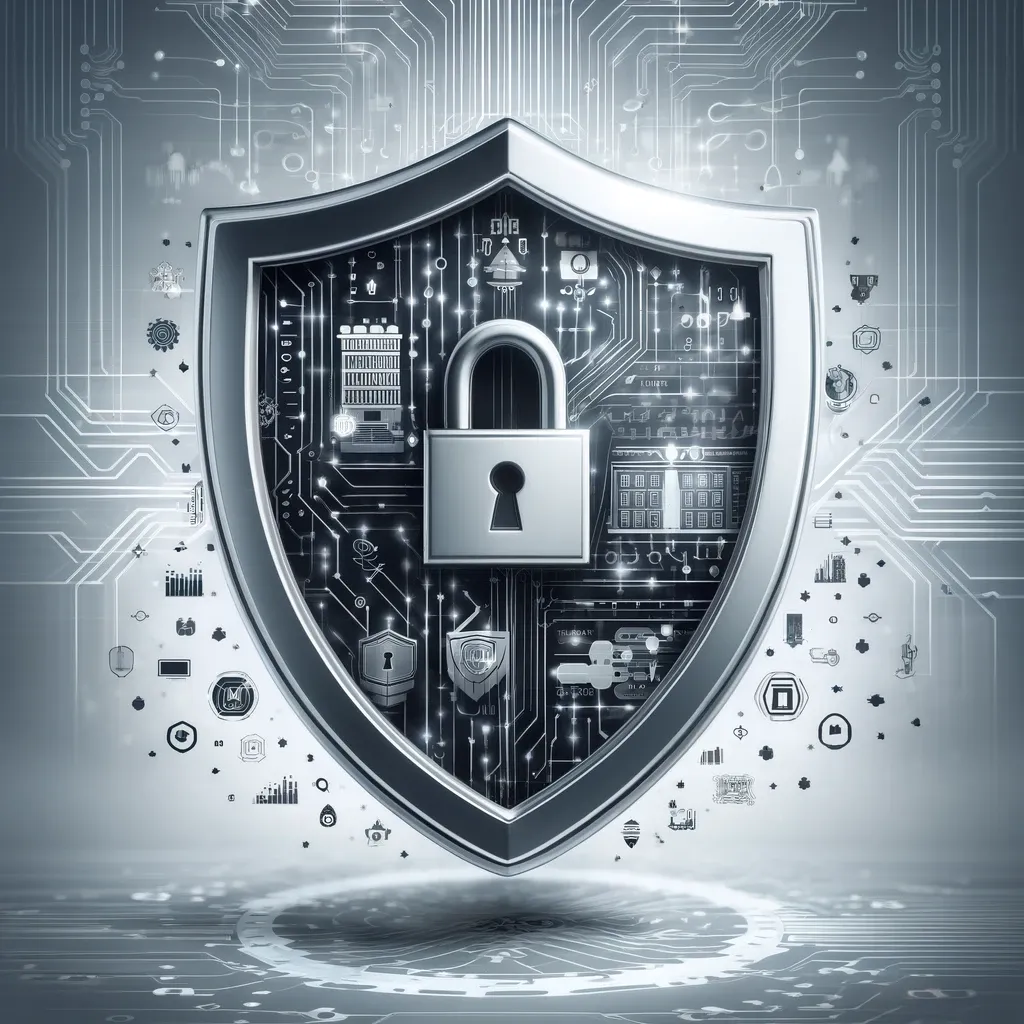2024 Cybersecurity Guide for Small Businesses
Discover essential cybersecurity strategies for SMBs in the 2024 cybersecurity guide by Mohamed Soufan. Learn to protect key assets with advanced measures like multi-factor authentication and employee training, ensuring your business remains secure against escalating cyber threats.

Cybersecurity attacks affect not only large corporations but also small and medium-sized businesses (SMBs). In fact, in 2020 alone, small businesses were targeted in over 700,000 attacks, resulting in approximately $2.8 billion in damages. These figures should alert every small business owner to the importance of protecting their enterprises from such threats. Adding to the urgency, 95% of cybersecurity incidents at SMBs cost between $826 and $653,587, potentially crippling financial burdens for any business. Furthermore, 75% of SMBs could not continue operating if they were hit with ransomware, underscoring the critical need for robust cybersecurity measures. The 2024 cybersecurity guide is designed for small business owners, IT managers, and security personnel who want to enhance their cybersecurity expertise. It offers advanced strategies to protect crucial digital assets through robust password policies, multi-factor authentication, and heightened employee awareness. Assuming a basic understanding of cybersecurity practices like SSL certificates and antivirus software, this guide delves into more complex defenses. You’ll find practical tips on securing mobile devices, conducting security audits, and more, helping you safeguard your business against evolving cyber threats.
Key Strategies to Protect Your Small Business From Cyber Attacks
In this cybersecurity guide, I'll assume you're already familiar with fundamental cybersecurity measures like SSL, anti-viruses and using safe templates. Therefore, I will concentrate on more advanced strategies that go beyond these basics.
Identify your key assets
This is the initial step in safeguarding your small business from cyber threats. Identifying your valuable assets allows you to concentrate your protective efforts on the most critical parts of your business.
Most valuable digital assets in SMBs include:
- Customer data
- Financial information
- Intellectual property
- Employee information
By focusing on these areas, you can better allocate resources to protect against threats, rather than diluting efforts across less critical aspects of your business.
Educate your team on cybersecurity basics
From my experience as a cybersecurity expert, most attacks occur because teams lack knowledge in cybersecurity. Attackers use social engineering to trick employees into allowing access to your systems, often without having to exploit any technical vulnerabilities.
In 2021, we served as penetration testers for a large E-Commerce website and mobile app client in Beirut. We successfully accessed the software’s admin panel solely through social engineering and phishing attacks.
Equipping your team with basic cybersecurity knowledge can significantly enhance the safety of your business and customers. It is not always necessary to enroll your employees in paid cybersecurity programs; even basic knowledge can make a big difference.
Basic cybersecurity knowledge includes:
- Phishing, Vishing, Smishing, Spoofing, and Pharming.
- Social engineering
- Customer data handling
Securing mobile devices and ensuring the privacy of automated interactions, such as those handled by chatbots, is critical. Learn more about this in my article on Are Chatbot Conversations Private?
While the media can influence public understanding of cybersecurity, it sometimes misleads rather than educates. This is exemplified in my analysis of Rabia Al Zayyat’s cybersecurity episode on Al Jadeed TV, which spread myths and misinformation about cybersecurity challenges.
Training your staff in cybersecurity turns them into a vigilant workforce, ready to be the first line of defense against cyber attacks.
Restrict untrained employees' access to sensitive data
Ensure that only employees who have undergone cybersecurity training have access to sensitive information. This precaution is vital for preventing internal security breaches.
By limiting access to qualified employees, you protect your business by ensuring that only well-prepared staff handle critical data. Regular training sessions enhance your team’s ability to protect sensitive information and strengthen your overall security measures, building on the foundation of a knowledgeable workforce.
Implement robust password policies
Even beginner hackers can use brute-force tools to crack weak passwords. Guess which accounts get hacked most easily? That's right—those with simple passwords. To prevent this, implement a strong password policy.
In a recent paper from the SANS Software Security Institute titled "Bye Bye Passwords", one of the common vulnerabilities include password reuse.
Password reuse attacks happen when a hacker gets hold of one of your passwords and then tries to use it to access your other accounts. It’s crucial to have strong and unique passwords for all your accounts, especially those for banking, health, and legal matters.
It's understandable to reuse passwords given the many we must remember, but this practice can seriously compromise all of your data, no matter how strong or complex the password is.
Use multi-factor authentication (MFA)
Did you know that only 29% of companies reported using multi-factor authentication?
As a result, more and more businesses are making MFA a requirement before allowing access to accounts.
Enhance your business's security by implementing multi-factor authentication (MFA). This method requires employees to verify their identity in more than one way when accessing company accounts, significantly reducing the likelihood of unauthorized access.
Even if a password is compromised, the additional authentication step helps keep your data secure.
Track and address security incidents
It's vital for small businesses to actively monitor their systems for any security incidents and have a clear plan to respond effectively. Implementing tools that track unusual activity can help you detect breaches early.
This prolonged duration underscores the importance of monitoring and responding to security incidents promptly to stay informed about any cybersecurity issues related to your software.
When using monitoring tools, you can detect the breaches and issues much faster. Responding swiftly to identified incidents helps mitigate damage and safeguard your business's reputation. Regularly updating your response strategies and training employees on them are key steps in maintaining robust security protocols.
Control access to hardware
Controlling physical access to your business’s hardware is a critical aspect of cybersecurity. Limiting hardware access to only authorized personnel prevents potential tampering or theft of sensitive equipment.
Consider using secure locks, surveillance systems, and restricted area badges to enhance security. By keeping your hardware under close watch, you safeguard your business’s digital assets from physical threats.
Keep systems regularly updated
Believe it or not, but based on Statisa, 73% of companies in North America use browsers that are out of date.
Outdated browsers present significant security vulnerabilities for small businesses. These older versions lack the latest security updates and patches that are critical for protecting against new threats. Cyber attackers are constantly seeking and exploiting these vulnerabilities to deploy malware, execute phishing attacks, or even hijack sessions to gain unauthorized access to sensitive business data.
Keeping your systems updated and patched is essential for safeguarding your small business from cybersecurity threats. Regular updates fix vulnerabilities that hackers could exploit.
This proactive approach secures your data and enhances the overall performance of your systems.
Regularly backup data
Regular data backups are crucial for small businesses to ensure that important information can be recovered in the event of a cyber attack, system failure, or data loss incident. Implement a reliable backup strategy that includes frequent updates to backup copies and secure storage solutions, either onsite or in the cloud.
Implement firewalls to secure networks
Installing firewalls is a fundamental step in defending your small business's networks from unauthorized access and cyber threats. Firewalls act as barriers that monitor and control incoming and outgoing network traffic based on predetermined security rules. This protection helps prevent malicious software and hackers from accessing your sensitive data. For comprehensive security, ensure that both hardware and software firewalls are properly configured and regularly updated.
Secure your Wi-Fi network
Ensuring that your business's Wi-Fi network is secure is crucial to protecting sensitive information from cyber threats. Start by setting up strong encryption (WPA3 is recommended) and changing the default network name and password to something unique and complex. Regularly updating these credentials and limiting access to the network can also prevent unauthorized entry. By securing your Wi-Fi, you minimize the risk of data breaches and maintain the integrity of your business operations.
Conduct regular security audits
Regular security audits are essential for identifying vulnerabilities in your small business’s cybersecurity defenses. These audits help assess the effectiveness of your current security measures and pinpoint areas that need improvement. By conducting these evaluations periodically, you can stay ahead of potential threats and make informed decisions to strengthen your security posture. It’s advisable to work with cybersecurity professionals to ensure a thorough and unbiased audit process.
FAQs
How to identify the key digital assets in a small business?
Small businesses can identify their key digital assets by assessing which data and systems are essential to their operations. Common critical assets include customer data, financial information, intellectual property, and employee records. Prioritizing these assets helps in focusing security measures where they are most needed.
What are the most critical cybersecurity measures for small businesses?
Small businesses should focus on implementing strong password policies, using multi-factor authentication, regularly updating their systems, educating employees about cybersecurity, and conducting regular security audits to identify and address vulnerabilities.
Why is it important for small businesses to update their systems regularly?
Regular system updates are crucial because they patch security vulnerabilities, enhance system performance, and protect against the latest types of cyber threats. Delaying updates can leave a business exposed to attacks that exploit outdated software.
Why is Multi-factor authentication (MFA) important?
Multi-factor authentication (MFA) is important because it significantly reduces the risk of unauthorized access, making it much harder for attackers to compromise accounts even if they know your password.
How to protect SMBs from cyber attacks?
Start by identifying and securing your key assets, such as customer and employee data, financial information, and intellectual property. Implement robust password policies, use multi-factor authentication (MFA), and keep your systems updated to close potential security gaps. Additionally, training your team is crucial, as most breaches result from human error. Educate employees on cybersecurity basics and social engineering tactics, like phishing, to prevent unauthorized access. Regularly update your response plans and conduct security audits to maintain strong defenses. These steps help build a knowledgeable workforce that can act as the first line of defense against cyber threats, protecting your business and customer trust.
Conclusion
2024 Cybersecurity guide for small businesses
Protecting your small business from cyber threats is an ongoing process that requires diligence and a proactive approach. By identifying your key assets and educating your team on the basics of cybersecurity, you create a strong foundation for safeguarding your enterprise. Implementing advanced strategies like multi-factor authentication, robust password policies, and regular security updates further enhances your defenses against increasingly sophisticated cyber attacks.
Regular monitoring and prompt response to security incidents are crucial to minimize potential damages and maintain your business's integrity. Additionally, ensuring that all physical and digital accesses are securely controlled helps protect your critical data and systems from unauthorized intrusions.
Finally, by conducting regular security audits and keeping your team well-informed and vigilant, you not only protect your business but also empower your employees to be an active part of the defense strategy. Stay updated, stay secure, and remember that the safety of your small business is an investment in its future success.



